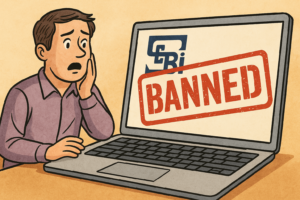Dive into our comprehensive guide on common job interview questions and how to answer them impressively. Prepare, Impress, and Ace your next interview with our effective job interview tips
Every professional, from a fresh graduate to a seasoned expert, has at some point sat across the table from a potential employer, answering a barrage of questions about their skills, experience, and aspirations. Job interviews, a critical rite of passage in the pursuit of career growth, are a nuanced blend of presenting oneself convincingly and understanding the employer’s expectations. More than merely a question-answer session, they are a golden opportunity to showcase not just who you are but who you could become in the context of the organization.
Yet, despite their importance, many professionals enter these meetings unprepared, hoping to ‘wing it.’ It’s this very casual approach that leads to missed opportunities and regrets. Rather, a planned approach, understanding commonly asked questions, their underlying meaning, and crafting thoughtful responses can make a world of difference.
The art of responding to job interview questions is not about memorizing scripted replies. It is about developing a holistic understanding of what the interviewer wants to know about you. It’s about being confident, real, and responsive. It’s about painting a vivid picture of your professional persona that stays in their memory long after you’ve left the room.
Our journey in this blog post will equip you with insights into 18 common job interview questions, and how you can answer them to create a positive, lasting impression. Remember, every question posed in an interview is a window to showcase your strengths, learnings, ambitions, and alignment with the company’s mission and vision.
Lastly, interviews are not a one-way street. They are also a chance for you to gauge if the company’s culture, work ethos, and growth opportunities align with your aspirations. While you prepare your answers, think about the questions you might want to ask. It’s your career path; you should be as convinced about them as they are about you.
Common Interview Questions and How to Answer Them
1. “Tell me about yourself.”
This question is an open invitation to succinctly present your career narrative. Start by summarizing your current role, then mention your past experiences that led you there, and end with what you’re looking to do next and why you’re interested in this job. Show progression and touch upon the skills and experiences that make you suitable for the role you’ve applied for.
2. “What is your greatest strength?”
Here, discuss a strength that aligns well with the job description. For example, if you’re applying for a sales role, you could talk about your excellent communication skills or ability to build strong client relationships. Always back your strength with examples to illustrate your point.
3. “What is your greatest weakness?”
The key to answering this question is to demonstrate self-awareness and an eagerness to improve. Pick a genuine weakness that doesn’t directly undermine your ability to perform the job, explain what steps you’ve taken to overcome it, and how you’re making progress.
4. “Why do you want to work here?”
This question aims to assess whether you’ve researched the company and if you share its values. Mention specific aspects about the company that appeal to you, such as its culture, mission, or product line, and how these resonate with your personal goals and values.
5. “Why did you leave your last job?”
Answer this truthfully but avoid speaking negatively about your previous employer. Instead, focus on the new experiences, challenges, or opportunities that you’re looking for in your career.
6. “Where do you see yourself in five years?”
With this question, employers want to know if you’re likely to stay with the company long term. You can mention your desire to take on new responsibilities, challenges or roles within the company that align with its mission and growth plans.
7. “How do you handle stress and pressure?”
Provide examples of how you’ve successfully managed stress in your previous jobs. Discuss stress-management techniques such as prioritizing tasks, maintaining work-life balance, or practicing mindfulness, showing you’re proactive about your mental health.
8. “Describe a time when you faced a challenge at work and how you dealt with it.”
Choose an example that showcases your problem-solving skills and resilience. Highlight your thought process, the actions you took, and the positive outcome that resulted.
9. “Why should we hire you?”
This is your chance to make a compelling pitch for yourself. Summarize your unique combination of skills, experiences, and personal attributes that make you the right fit for the role, and how you would add value to the company.
10. “Can you explain this gap in your employment?”
Be honest about the reason for the gap, whether it was due to travel, family commitments, or education. Stress on the fact that you’re now fully ready to commit to your career.
11. “Tell me about a time you made a mistake at work.”
Demonstrate your ability to take responsibility, learn from your errors, and implement changes to prevent them from happening again. Choose an instance that ended in a valuable lesson rather than a disastrous consequence.
12. “How do you handle criticism?”
Discuss how you see constructive criticism as a tool for growth and improvement. Provide an example where you’ve used feedback to improve your performance.
13. “How do you prioritize your work?”
Show that you’re organized and know how to manage your time effectively. Talk about the methods you use to prioritize tasks, such as Eisenhower’s Urgent/Important Principle or the ABCDE Method.
14. “What are your salary expectations?”
Research industry salary standards and provide a range that you’re comfortable with. Be honest about your expectations but show your willingness to negotiate.
15. “Tell me about a time when you went above and beyond for your job.”
Choose an example that demonstrates your dedication and commitment. Show how your extra effort had a positive impact on your team, project, or the company.
16. “Describe a difficult work situation and how you overcame it.”
This question is about your problem-solving skills and resilience. Choose a situation where your actions led to a resolution. Focus on the learning and growth that resulted from the experience.
17. “How do you deal with conflict at work?”
Talk about your conflict resolution skills. Use a real-life example to show your ability to handle conflict professionally, ensuring a productive and respectful outcome for all parties involved.
18. “Do you have any questions for us?”
This question gives you an opportunity to show your interest in the company and the role. Ask insightful questions about the company culture, expectations of the role, or the company’s future plans.
As you navigate the job-seeking journey, it’s essential to remember that interviews are your chance to shine. They are about more than just ticking off a checklist; they’re a platform to tell your story, showcase your skills, and align your aspirations with the potential employer’s vision.
But also remember, it’s equally crucial to listen and gauge if the company resonates with your goals. An interview is a two-way process; while the employer assesses your fit for the role, it’s your opportunity to assess if the company’s culture, growth opportunities, and work ethos align with your career trajectory.
No two interviews will be the same, and that’s the beauty of it. Every meeting is an opportunity to learn, grow, and become a better professional. So prepare for the common questions, but be ready to think on your feet. Being authentic and personable goes a long way in creating a positive impression.
Lastly, while technical skills and experience are important, never underestimate the power of passion and a positive attitude. A potential employer doesn’t just invest in a candidate’s present skills but also in their potential. An enthusiastic and positive mindset is a strong indicator of that potential. So walk into your next interview armed with preparation, confidence, and an eagerness to grow.
If you’re a startup founder, submit your startup story for free with us
Did you know? Startups like to use our coworking space in Bangalore
Call us to reserve your space at Work Theater
Learn more about our coworking space on our YouTube channel Work Theater Studios where we talk about a variety of topics including personal finance, entrepreneurship, business and life.




